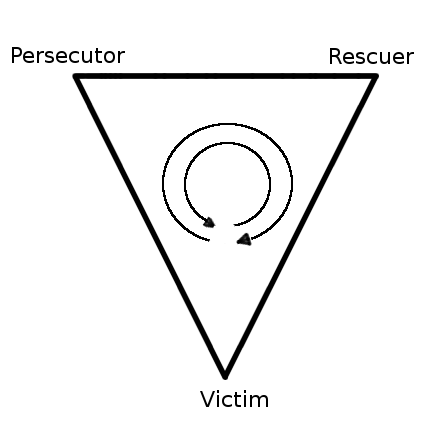

In our relationships discussions can end up in a totally different way than we expected and we feel like fools afterwards. The idea was to receive or give help and it doesn’t happen, here is why.
Remember that day when your friends had a fight out of nothing? The scene might have looked like this:
Tit: Lately I have really grown out of shape.
Tat: Why don’t you do some sport with me tomorrow morning?
Tit: I’m always so tired in the morning.
Tat: If we’d go outside you’d have some fresh air to help you wake up.
Tit: It’s too cold and they announced rain for tomorrow.
Tat: You should try instead of constantly look for excuses.
I remember having seen such situations and in some cases I admit to even have been playing my part in such a plot. Usually I would then find myself wondering what had happened to end up with a totally different situation I had wanted. It is only by asking myself some questions, that I can avoid such situations.
Let us have a closer look at the dialogue. Tit started it with a statement in which you can perceive some distress or a sense of inadequacy. It can be a real quest to find help, yet it can also create for Tat the wish to reach out and help. This is a most accepted reaction; just remember the fairytale you have heard as a kid: a mixture of help, love, rescue and everlasting happiness in which a prince will appear and rescue the princess. And for sure, Tat starts out to rescue by suggesting solutions.
Why does it end up like this?
It might very well be that Tit was looking for help and that would have been perfectly OK, yet there was no clear request for help. The suggestions offered by Tat might have been a perfectly genuine offer to help, on the other hand it can be possible that Tat likes to fix situations or rescue others. Do you remember the energy and power you felt whenever you succeeded to help? To feel such power again thus can be a reason to help independently from the fact that help has been asked for or not.
The result of such discussion depends on the expectations of the participants. In our case Tit might have hoped that Tat solves the situation and Tat could have expected that Tit accepts Tit accepts to be rescued and follows the indications. As this didn’t happen, Tat became disappointed and started to judge Tit.
Stephen Karpman visualized such situations or discussion via the drama triangle.
In this image, the three corners of the triangle correspond to the three roles we have seen above. This isn’t static, thus roles might be switched: Tit started out as victim, Tat jumped in as rescuer and ended up as persecutor.
Change the Outcome!
Your goal has to be to avoid taking up one of the roles in the triangle or to find ways to step out again.
The following questions and actions will help you to succeed.
1. Think
Whenever you see yourself take up one of the roles, stop to think why you might be doing it. Are you looking for a specific benefit?
- Are you asking for help? Or do you feel helpless and hope for a confirmation that you won’t make it? Would you call yourself a victim of your situation?
- Is your offer to help genuine? Or would it feel nice to be needed making you whish to save the other?
- Are you offering useful criticism? Or are you trying to protect yourself from feeling insecure by attacking?
2. Clarify the Expectations
When hearing or feeling a request for help, verify that there has been a clear request for help. Why not ask if you can help, where or how?
If you feel the urge to rescue, ask yourself if it is your business to help and if it is a problem where you can help. If the answer no, it is OK to state that you will not become involved, you might not even need to explain it.
When offering your help, make sure that it is a genuine offer to help and accept that the other person might not follow your suggestions. As much as you might hope that help would be accepted, it is their choice not yours.
If you receive suggestions you didn’t ask for, think about your needs and how you expressed them. Restate what you have been looking for or explain what you are feeling.
When feeling insecure or at the mercy of forces beyond your control look for someone who can give you the attention or responsiveness you are looking for. Find yourself a mentor for example.
Ask yourself how you will feel afterwards. Is it what you are looking for? Will you feel better then?
3. Remind yourself that you are a unique person. You have the choice, you can do it.
[Original publication via frogstalk.com, Aug 10, 2010]

